2019 Year in Cinema
How could anyone think cinema is dead when so many films this year were exceptional? Quite a few were masterpieces–some were overpraised, a handful were formally daring, and there were numerous films this year that were so personal and autobiographical that you felt the pain and sorrow in the material. 2019 was indeed the year for the personal filmmaker. There were so many great offerings this year that narrowing down the list was truly a difficult task. These were the 10 best:

1. Once Upon a Time in Hollywood (d. Quentin Tarantino)
Quentin Tarantino’s fantasy set in the bygone year of 1969, when hippie counterculture reached a level of normalization, and The Manson Family were just beginning to band together. During this time, Hollywood was beginning to transition into the American New Wave movement as many Hollywood actors from the Old Hollywood that consisted of westerns and TV shows started to slip away. One can’t ignore that “Once Upon a Time in Hollywood” is Tarantino’s most personal film to date with its emotional truths about actors and artists reaching a point of fading away and being irrelevant. The film also pays a great tribute to Sharon Tate (Margot Robbie). While the film is fictionalized, it reminds us of the importance of the victim’s inner life, which is often overlooked by media frenzy. What makes the film so remarkable is Tarantino’s tribute to and affection for his characters living in a bygone era. Leonardo DiCaprio and Brad Pitt are also a dynamic duo here, and they deliver some of the greatest and most iconic performances of the year.
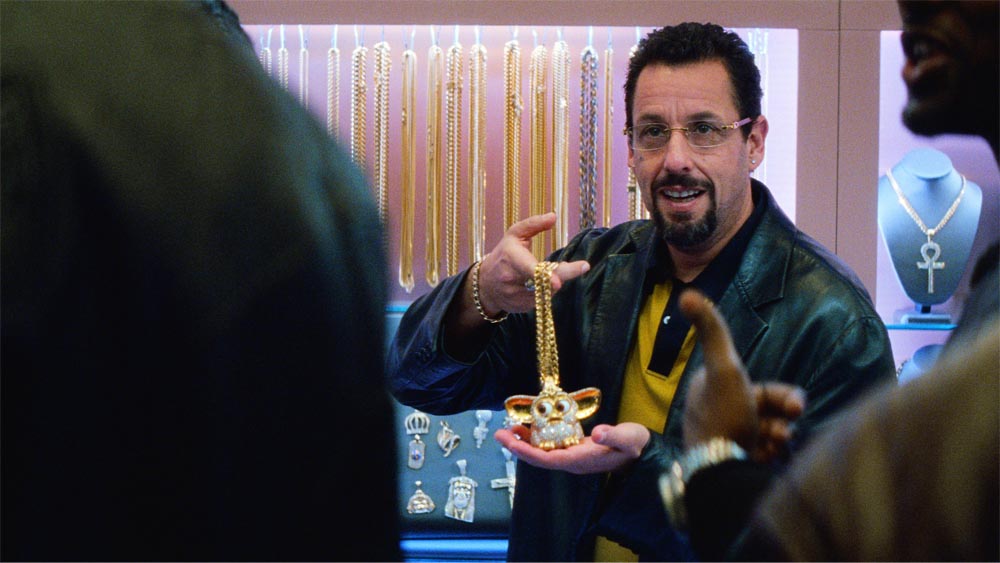
2. Uncut Gems (d. Josh and Benny Safdie)
Much of the world’s agony is caused by man’s greed and thirst for materialism. The Safdie Brothers’ latest film, written with Ronald Bronstein, uses adrenaline fueled energy to capture these truths as Howard Ratner (Adam Sandler), a Jewish-American jeweler finds his own self-destruction due to his gambling addictions. The film isn’t your typical “cautionary tale” movie–the films energy and momentum makes you feel the anxieties and pressures Howard endures as his life is put into jeopardy due to the consequences of his careless choices. This is more than a film–it’s truly an unforgettable experience that will pull you in and never let go. Adam Sandler has never been better.
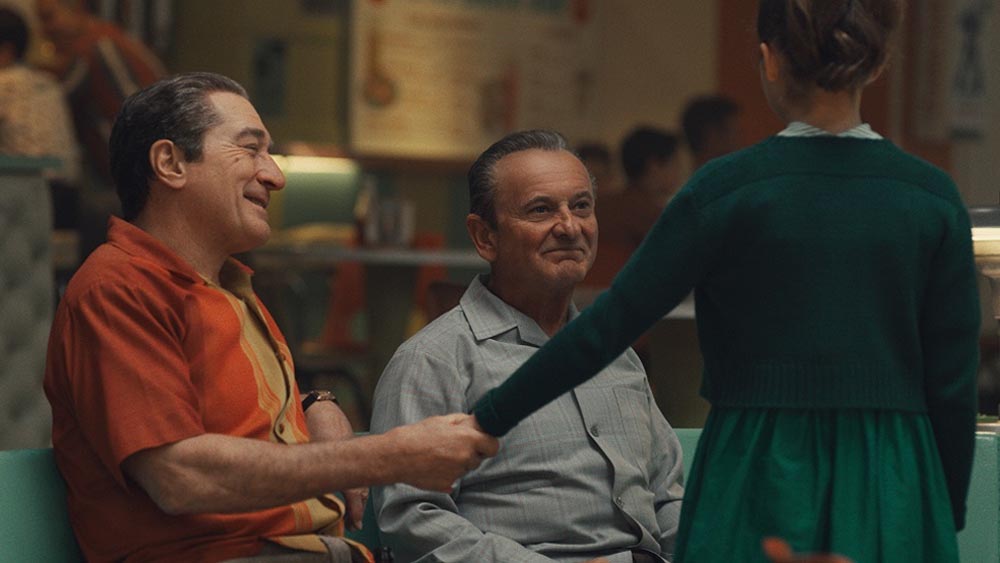
3. The Irishman (d. Martin Scorsese)
Martin Scorsese has been the most reliable auteur of the past 50 years, delivering at least two masterpieces a decade, and at least one great gangster picture a decade between 1973 and 2019. “The Irishman”, the theoretical movie about the death and disappearance of Jimmy Hoffa (Al Pacino) that involved Frank Sheeran (Robert De Niro) and Russell Bufalino (Joe Pesci), is another masterpiece in Scorsese’s impressive oeuvre. It is an expertly crafted example of his artistry: a film that doesn’t glorify the mobster lifestyle, yet explores the human condition and regret in a sorrowful and melancholic way.

4. The Wild Pear Tree (d. Nuri Bilge Ceylan)
Nuri Bilge Ceylan’s epic film may be the most personal of the year, and it plays like a synergy flow with “Once Upon a Time in Hollywood” and “The Souvenir,” showing artists trying to pull their artistry through within austere and changing environments. Ceylan, along with screenwriters Erbu Ceylan and Arin Aksu, follows an aspiring writer trying to obtain funding to get his first book published, yet all he finds is a complacent society that holds little interest in or regard for the arts or his aspirations and goals. No other film felt as intimate this year, and Ceylan’s imagery and deep characterizations have stayed with me ever since.
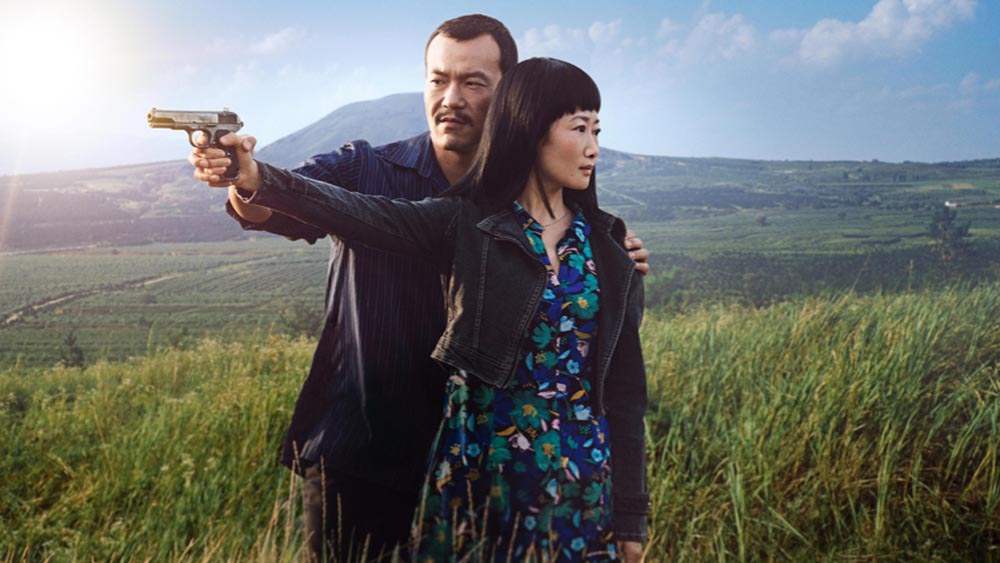
5. Ash is Purest White (d. Jia Zhangke)
Jia Zhangke is that one director that just continues to keep improving with each film. The Chinese director follows the criminal lifestyles of Qiao (Tao Zhao) and her crime lord boyfriend Bin (Fan Liao) as they find themselves in a gang war in 2001 post-industrial China. The black-market war leads Qiao to be arrested for carrying an unregistered gun and Bin is deeply wounded. The two are separated for a decade and the meaning of the film’s title is the power of forgiveness. The film holds deep themes about how the ruthless totalitarian government of China has led to this type of bloodshed and the black markets that currently exist in China.
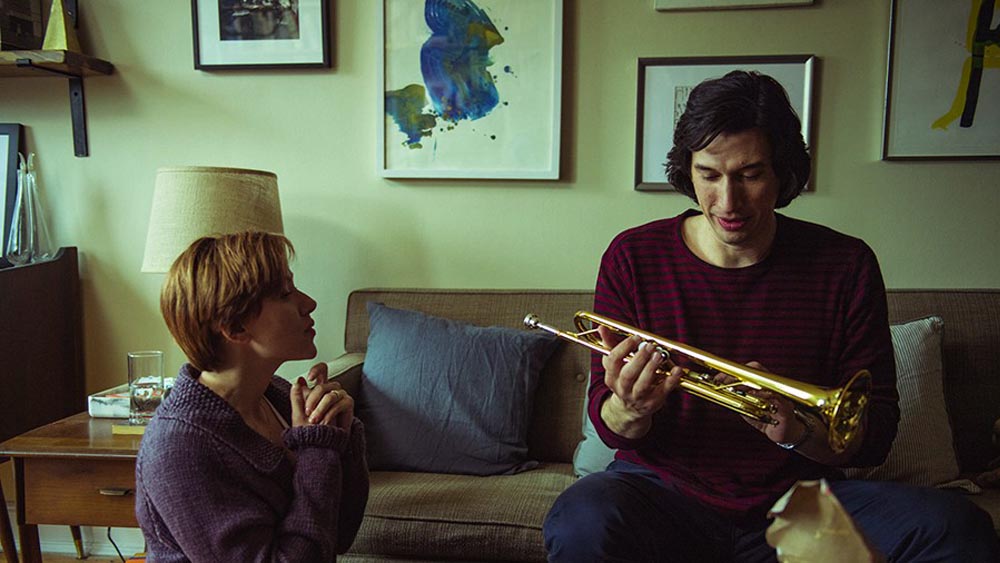
6. Marriage Story (d. Noah Baumbach)
Featuring career-defining performances by Adam Driver and Scarlett Johansson, “Marriage Story” is Noah Baumbach’s most vulnerable and heartbreaking film to date. A melancholic study about divorce that will deeply move you, the film also leaves you with great joy. It is one of the most bittersweet and deeply humane films to be released this year. By possibly using his own past experiences, Baumbach’s vision paints a vivid and rewarding portrait of how our society and its courts operate. Divorce is littered with endless amounts of bureaucracy that it is draining on both a financial and emotional level for all parties involved. In the end, “Marriage Story” is a devastating and substantial film that leaves on a bittersweet and equally hopeful note.
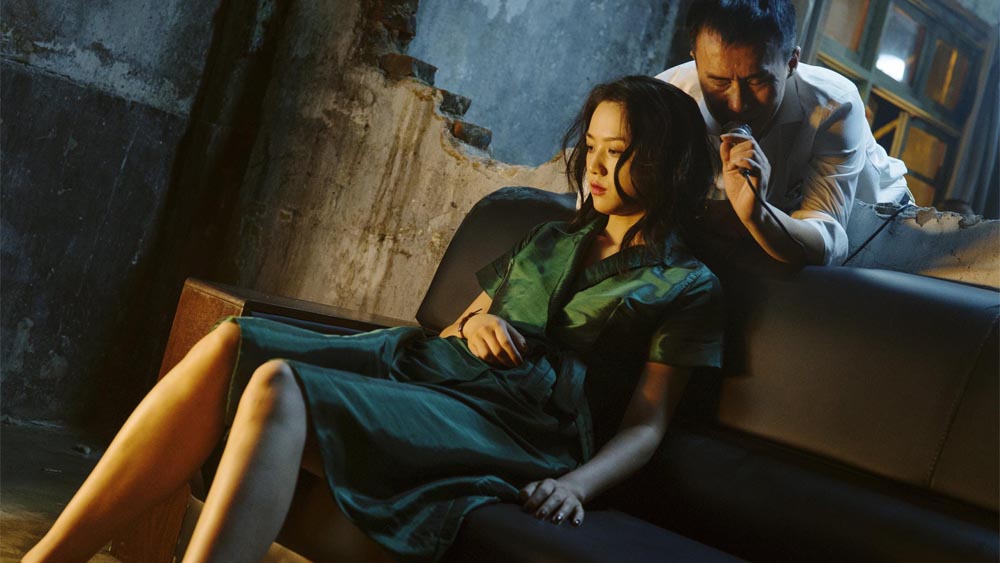
7. Long Day’s Journey into Night (d. Bi Gan)
A poetic and picturesque tribute to China, to love, loss, and the passage of time, Director Bi Gan captures one of the year’s most ravishing and luminous movies, blending flashbacks with a woozy score that makes the entire film feel like a dream. A film that uses noir tropes with an elliptical and sensory atmosphere that examines how memory is just as deceptive as cinema. Bi Gan plays with these ideas, especially during its climax that involves a movie theater, a mineshaft, a zipline, and a village inside China’s Kailli City. The final image is a pure homage to Andrei Tarkovsky’s “Stalker”, suggesting how time and great joy can sadly evaporate away within seconds. Bi Gan reminds us that the passage of time is sadly the demise of all.

8. The Souvenir (d. Joanna Hogg)
An extraordinary and deeply personal exploration of memories and experiences, British writer-director Joanna Hogg’s fourth feature film, “The Souvenir”, is an astonishing origin story that is clearly auto-biographical, and the vision on display in this film is quite relieving since it avoids being didactic on gender, class, and relationships. Instead, Hogg is more interested in crafting an observational visual memoir that is layered, intimate, and ultimately elegiac. Her film does explore fresh and profound themes on privilege, doomed relationships, and what it truly means to be a filmmaker, but she isn’t interested in preaching or lecturing to the audience, or making a film about the battle of the sexes. Instead she allows the human depth and ideas in the film to be honest and involving, and the result is a female filmmaker that ranks with Sofia Coppola, Claire Denis, and Andrea Arnold.

9. Parasite (d. Bong Joon-Ho)
Korean director Bong Joon-Ho’s black comedy-suspense drawer, about an impoverished family that swindle their way into an upper-class household, uses impeccable craftsmanship and nail-biting suspense to examine class warfare. Throughout the course of the film, Bong Joon-Ho defies expectations by unraveling his genre-driven sensibilities and chaos with deep humility and humanity: we feel great empathy and sympathy for both families as this astonishingly crafted film is a scathing plea for greater compassion and humanization in South Korea’s society.
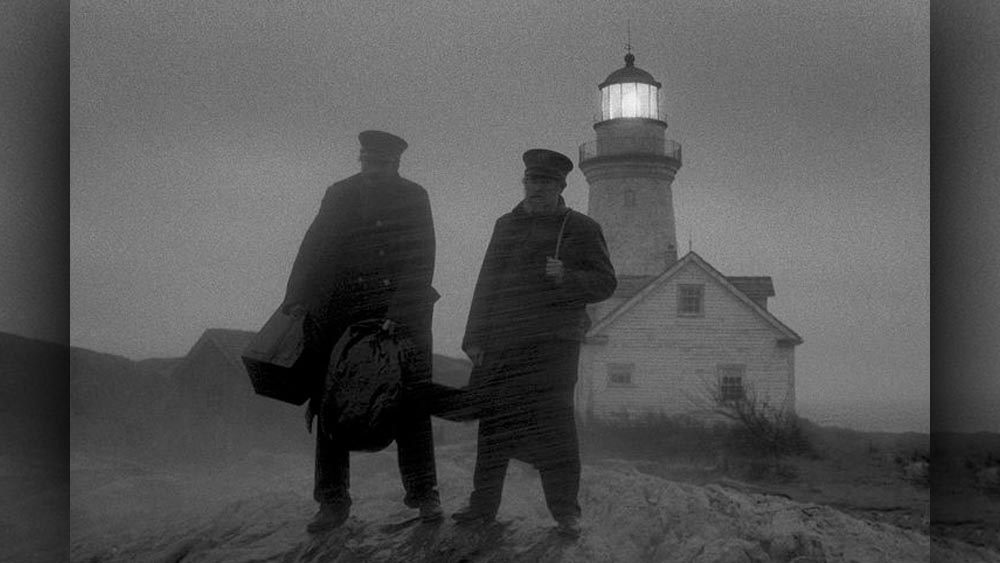
10. The Lighthouse (d. Robert Eggers)
Everything from the visually arresting black and white cinematography by Jarin Blaschke, to the stellar landscapes on a remote island off Nova Scotia, along with two memorable performances by Robert Pattinson and Willem Dafoe, makes Robert Eggers sophomore feature follow-up to “The Witch” a cinematic landmark. The film is also remarkable how Eggers crafts “The Lighthouse” to feel so vividly real and equally surrealist. There are times where you feel like Eggers transports you back to a certain time in just how authentic it feels, while in other moments of the film you feel like you have been transported into somebody’s subconscious. “The Lighthouse” indeed triumphs in feeling like a feverish nightmare that captures the maddening and brooding psychology of isolation and male repression that all unfolds inside a claustrophobic, hermetic lighthouse on a remote island.
Runners-Up (In Alphabetical Order)
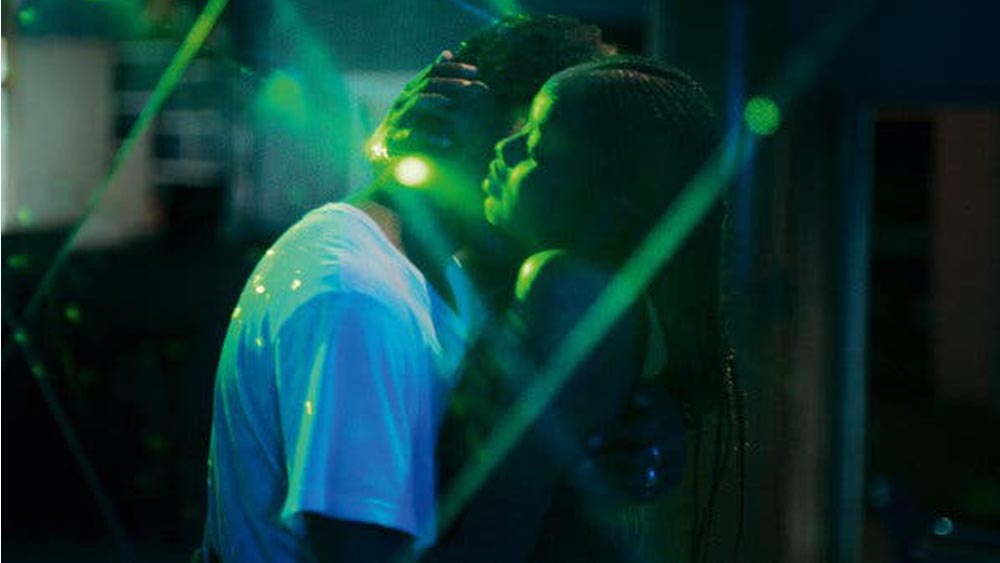
Atlantics (d. Mati Diop)
Mati Diop’s debut feature film “Atlantics” is a very explosive and mystical ghost story that touches on some very important subjects impacting the country of Senegal today. A visually sublime film that explores how the living cope with the dead, how workers are exploited by the wealthy, and how old lifestyles collide with the new, Diop delivers pure serenity to its visual lyricism.

The Beach Bum (d. Harmony Korine)
“The Beach Bum” is a highly amusing and sensory film that invokes a spiritual uplift of what it means to be alive. And this is Korine’s point: to achieve artistry, satisfaction or happiness, one must explore and meander on until the fulfillment comes to them. This is Korine’s least cynical film of his career, and also his most sincere.
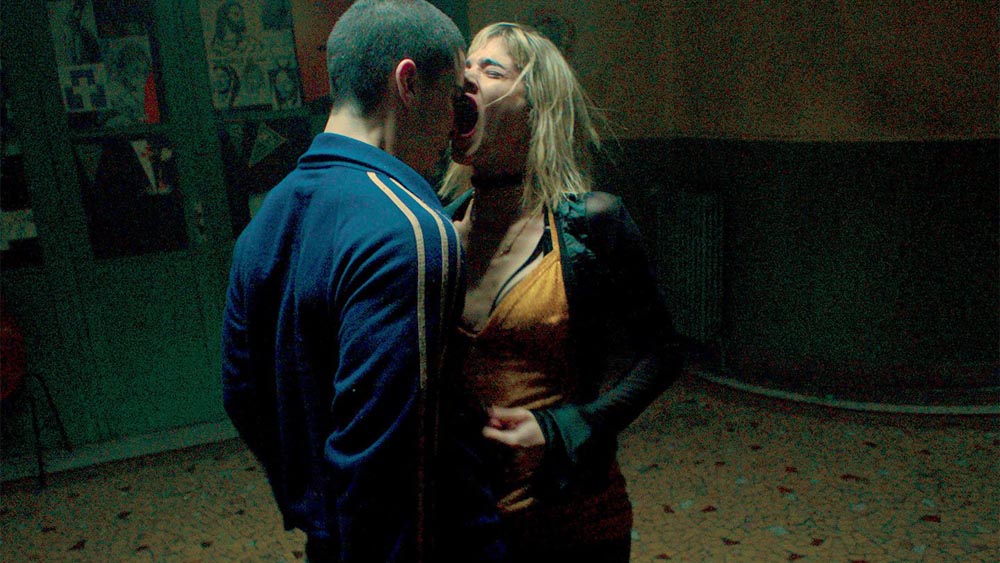
Climax (d. Gaspar Noe)
French filmmaker Gaspar Noe is one of the boldest filmmakers of our time, both in ideas and techniques. His latest film, “Climax”, is about members of a dance company that holds a discrete party in an empty school gymnasium, who all get trapped inside after someone spikes their fruit punch. Meanwhile they try to survive the night after the tampering of the drink leads to an unexpected high that causes them to physically attack and harm one another as if they are walking zombies. “Climax” continues Noe’s journey into the human abyss of repulsion and madness.
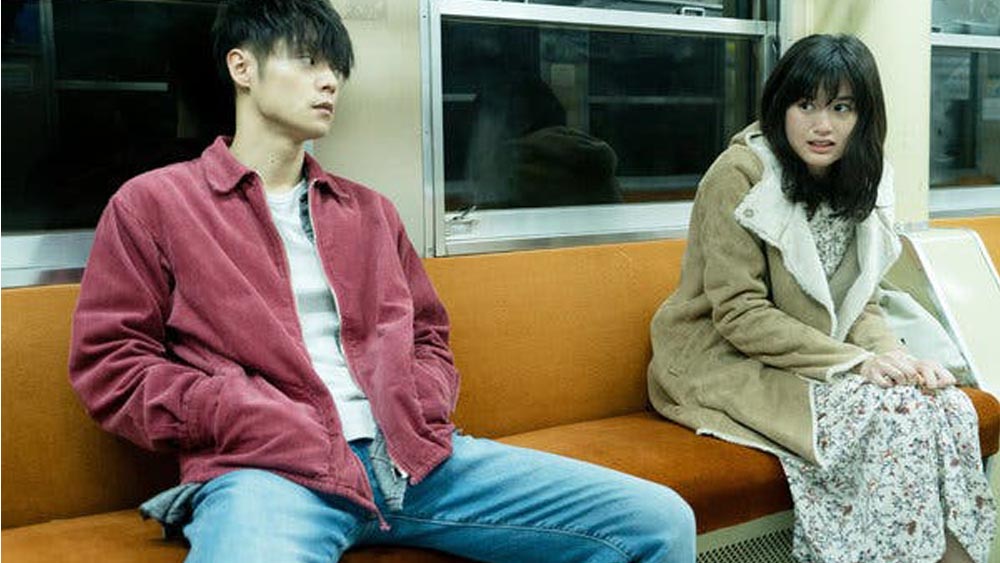
First Love (d. Takashi Miike)
Takashi Miike’s neo-noir crime thriller is an explosive action flick that explores the concept of chance, accepting death, and living a life of loneliness, “First Love” treats these humane themes inside a highly stylized world of noir fiction. Miike certainly shows no restraint with his level of pulpy violence, yet it’s rendered with a deep humanism that is earned very well in its closing scenes. This is certainly a highlight of the year, and of Takashi Miike’s career.
Portrait of a Lady on Fire (d. Celine Sciamma)
An incredibly ravishing movie from French director Celine Sciamma (Tomboy, Girlhood) that is filled with so much passion and artistry. What could have just been a film that only studies artistic voyeurism instead ends up becoming a monumental exploration on the power of observance, seldom chronicled with such a vivid female gaze style and detail that is scarce in cinema today.
Honorable Mentions (Other strong titles of 2019–In Alphabetical Order)
1917 (d. Sam Mendes)
A Beautiful Day in the Neighborhood (d. Marielle Heller)
Ad Astra (d. James Gray)
An Elephant Sitting Still (d. Hu Bo)
Diane (d. Kent Jones)
Dragged Across Concrete (d. S. Craig Zahler)
Everybody Knows (d. Asghar Farhadi)
Gloria Bell (d. Sebastian Lelio)
High Life (d. Claire Denis)
Little Women (d. Greta Gerwig)
Non-Fiction (d. Olivier Assayas)



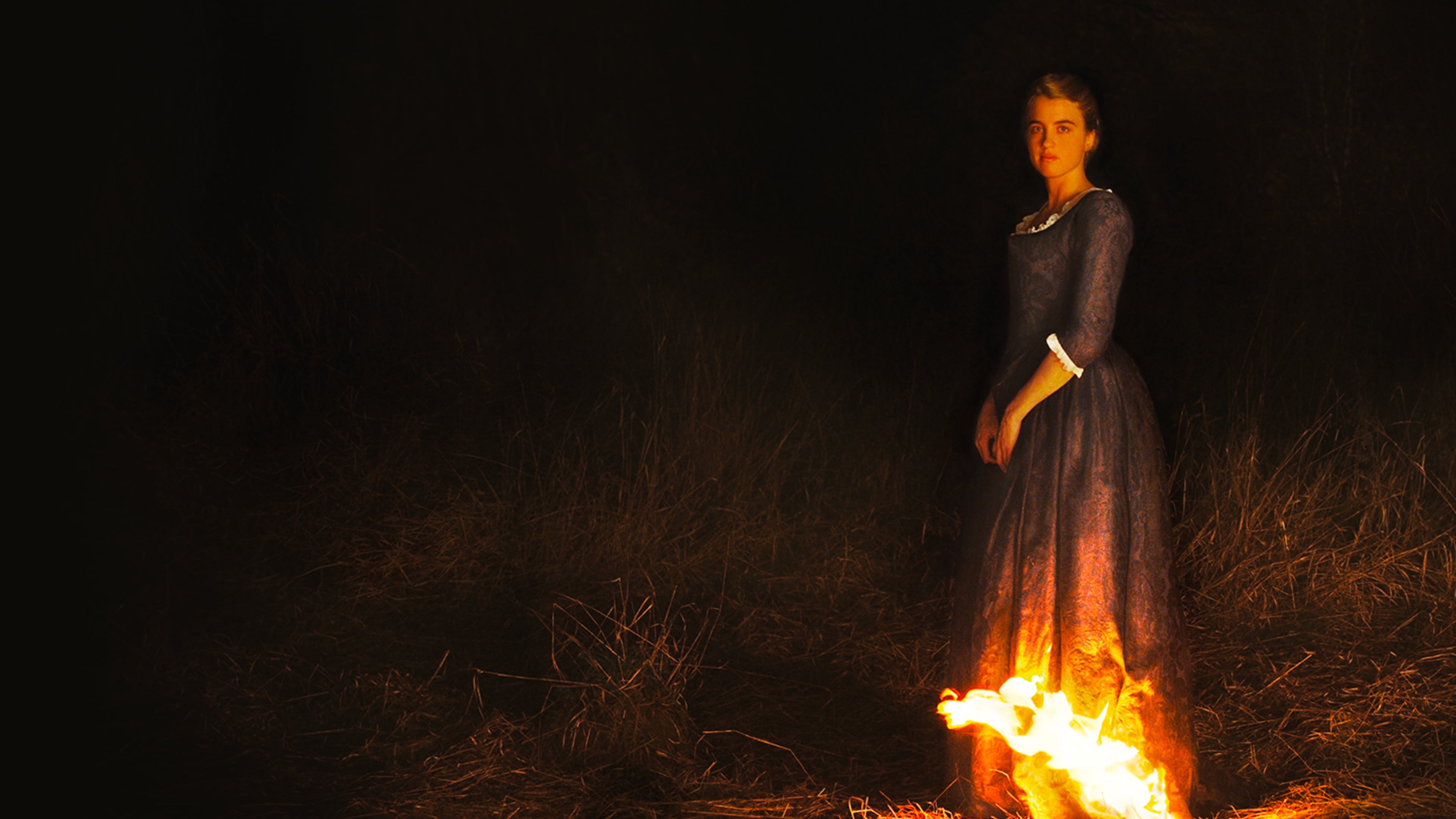

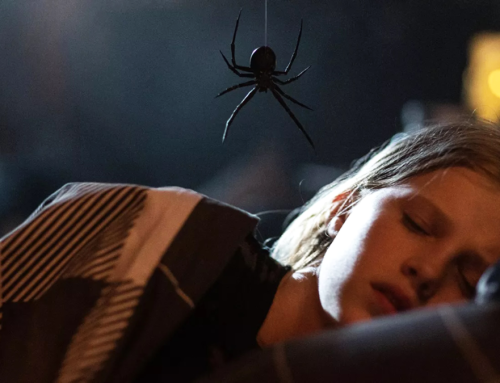

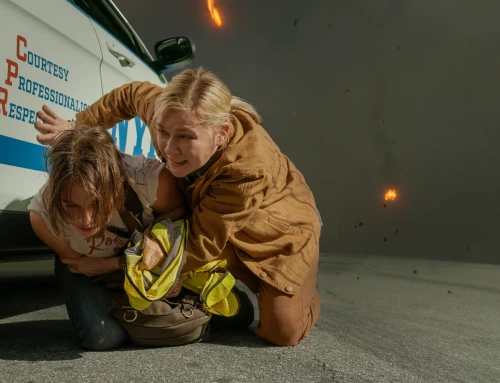

Great list!
Mine is
1. The Irishman
2. Once Upon a Time…In Hollywood
3. Parasite
4. Ash is Purest White
5. An Elephant Sitting Still
6. The Wild Pear Tree
7. Long Day’s Journey Into Night
8. Uncut Gems
9. Honeyland
10. Marriage Story
I fricking clapped hard when Joaquin won. I really wanted both him and the film, itself, to win, as well. However, I knew that “1917”, more so, epitomized the sort of film that wins Best Picture awards from organizations. I was also pleasantly surprised to see “Joker” win score, as well, as I really admired that factor about the movie, too, and, obviously, that was a category, if no others, where it beat “1917”.
My opinion of “Once Upon A Time In Hollywood”, when I saw it, was that it was meandering, aimless and dull dreck redeemed by entertaining scenes too spaced out. However, in light of its accolades, perhaps, I’ll give it another chance. I certainly did enjoy Brad Pitt’s performance in that movie and certainly don’t oppose him winning for that movie. As I stated previously, I would’ve liked to have seen “Joker” win more awards, for picture, director and screenplay, as well as Dolemite Is My Name, too. But I was certainly no more bemused by the entirety of the event than Mr. Gervais seemed to be lol
In no particular order some of my favorites would have to be,
The Irishman
Uncut Gems
Marriage Story
Jojo Rabbit
Rocketman
Once Upon a Time in Hollywood
Uncut gems. Parasite. Once upon a time in Hollywood. Swallow. Doctor sleep.why don’t you just die. Tone-deaf. The Irishman . Color out of space, the lighthouse
Cool breakdown
once upon a time in hollywood was excellent!
Awesome list. Marriage story is one of the most unique films of 2019.
/#1 Joker by far anything
#2. Once upon a Time in Hollywood
#3 The Central Park Five
#4 Angel has Fallen
#5 Downton Abbey
#6 Uncut Gems
#7 Motherless Brooklyn
#8 Glass
#9 Gemini Man
#10 The Irishman
Great List! These are my favorites of the year:
1. Parasite
2. Her Smell
3. Uncut Gems
4. Once Upon A Time In Hollywood
5. The Farewell
6. Honey Boy
7. Midsommar
8. I Lost My Body
9. The Lighthouse
10. Long Days Journey Into Night
Honorable mentions: Waves, The Last Black Man In San Francisco, Greener Grass, An Elephant Sitting Still, Ash Is Purest White, The Souvenir, Portrait of a Lady On Fire, The Beach Bum
Uncut Gems takes the number one spot for me. I’m stuck between The Lighthouse, Dragged Across Concrete, …Hollywood and Irishman are all in my top 5 but it’s almost too hard for me to place this year. Still want to check out 1917 (I’ve always found the lack of WWI pictures to be disheartening) and I NEED to see Parasite, soon it will be on Blu-Ray so I think I’ll just buy it to watch it, I can’t imagine being disappointed.
In no order …
Joker
The King
Hustlers
Avengers Endgame
I also didn’t see a whole heck of a lot of movies either haha
Once Upon a Time in Hollywood as well as The Lighthouse are up there for me, as well as Ford v Ferrari and Marriage Story. 2019 was a fine year in film.
How can you make a list that doesn’t have John Wick 3?! I know it’s an action movie but these started from essentially nothing, and each one they just keep dialing them up!!
Great list! I haven’t seen half these movies, but now I have a few to watch.
My top two films this year would have to be Ad Astra and Midsommar!
My top 10 films of the year:
1. Uncut Gems
2. The Beach Bum
3. Dragged Across Concrete
4. Once Upon A Time… In Hollywood
5. The Irishman
6. The Lighthouse
7. Parasite
8. Marriage Story
9. Joker
10. Honey Boy
Wildly different opinions about Uncut Gems. It wasn’t my kinda jam. Couldn’t sit thru it after the first hour. Some of my favorites, in no particular order…
Knives Out
Dolemite is My Name
Motherless Brooklyn
Parasite
The Irishman
Good Boys
The Peanut Butter Falcon
Ford v Ferrari
I haven’t seen a few of these, but for sure Once Upon a Time deserves its placement, but I think Joker is a top 5, not only for the film itself but for the conversations it opened up before and after its release.
Missed a lot of these art house films, will have to put them on my radar!
My favorite of the year was Joker, Uncut Gems is a close second. And the Lighthouse I absolutely need to see!
Totally agree about Once Upon a Time in Hollywood! My favorite film of the year too. Also loved the Parasite nod! That movie was great too.
My anxiety is going crazy, Lighthouse was a hell of a movie!!
Here’s my top ten:
1. Parasite
2. The Lighthouse
3. The Irishman
4. The Farewell
5. Once Upon a Time in Hollywood
6. Knives Out
7. Everybody Knows
8. Marriage Story
9. Queen & Slim
10. Us
Great list Rob as always. This year is the year of real filmmakers. Every film on this list could win an Oscar in various categories including the actors. Can’t for upcoming months.
I enjoyed once upon a time in Hollywood and Marriage story. I feel both films were without a doubt, the best of 2019. In once upon a time in Hollywood, Brad Pitt really delivered as a supporting actor. I think it was Quentin’s best work yet! Marriage story, was phenomenal also. Scarlett Johansson and Adam Driver had such believable chemistry, that you too, felt the enduring heartache as you seen their marriage crumble.
FAV MOVIES OF 2019 (No particular order)
1.) Native Son
2.)Birds of Passage
3.)Toy Story 4
4.)Once Upon a Time In Hollywood
5.)The Last Black Man in San Francisco
6.) Dolemite is my name
7.)Parasite
8.) Marriage Story
9.)The Light House
10 Uncut Gems
Honorable mentions:
-Arctic
-Aladdin
-Apollo 11
-Midsommer
-Shazam!
-The Farewell
-3 from Hell
-The Irishmen
-Monos
Very good list, a lot a still need to check out.
Movies
1. The Lighthouse
2. Uncut Gems
3. Marriage Story
4. Midsommar
5. The Beach Bum
Shows
1. Too Old to Die Young (Season 1)
2. True Detective (Season 3)
3. Primal (Season 1)
4. The Shivering Truth (Season 1)
5. Hot Streets (Season 2)
Pretty solid list. Quite a few of these I still need to check out like The Lighthouse, Parasite, Jojo Rabbit and The Irishmen.” Was never interested in the Beach Bum but I’m intrigued to watch it now.
Joker, Ad Astra, Uncut Gems, Once Upon of Time in Mexico, and US are some of my favorites from 2019. Also I still love my comic book films Spider-Man Homecoming was my favorite of all Spider-Man and Avengers: End Game was great!
Spider-Man: Far from home*
Yet another fabulous review from RJB! Highly insightful, intelligent and informative. Robert’s unique and profound understanding of his subject matter serves to provide supreme utility to his readers. When planning your next Friday night, check out Robert J Butler and Defacto Film Reviews!
Howdy, I think your blog could be having internet browser compatibility problems. Whenever I look at your blog in Safari, it looks fine however, when opening in IE, it has some overlapping issues. I just wanted to provide you with a quick heads up! Aside from that, wonderful site!|
I get pleasure from, result in I found exactly what I was looking for. You have ended my four day lengthy hunt! God Bless you man. Have a nice day. Bye|
You really make it appear so easy with your presentation however I in finding this topic to be actually one thing that I believe I’d by no means understand. It seems too complex and very extensive for me. I am looking forward to your next submit, I’ll attempt to get the hang of it!|
Currently it appears like Expression Engine is the top blogging platform available right now. (from what I’ve read) Is that what you’re using on your blog?|
I like the valuable info you supply on
your articles. I’ll bookmark your blog and test
again right here frequently.
I am quite sure I
will be told many new stuff right right here!
Best of luck for the following!
Such a great year for cinema. I really hope we have something like it this year. Here is my list:
1. 1917
2. Parasite
3. Jojo Rabbit
4. The Lighthouse
5. Uncut Gems
6. Pain and Glory
7. Knives Out
8. Marriage Story
9. Once Upon a Time in Hollywood
10. The Two Popes
HM: Joker, Us, The Last Black Man in San Francisco, The Farewell
(The Wild Pear Tree is my #1 for 2018.)
La reparación de electrodomésticos en Villaverde Alto se realizara en el domicilio del solicitante del servicio, realizando previamente un presupuesto de la reparación. Nuestras reparaciones en Villaverde Alto están garantizadas por escrito en los materiales empleados como en la mano de obra. Nuestro servicio técnico de lavadoras Basic Line, están disponibles de lunes a viernes de 9 a 20h y sábado de 9 a 2h en la reparación de electrodomésticos.
I appreciate, cause I found exactly what I was looking for. You’ve ended my four day long hunt! God Bless you man. Have a nice day. Bye
Hello! Would you mind if I share your blog with my myspace group? There’s a lot of folks that I think would really enjoy your content. Please let me know. Thanks
Very nice post. I just stumbled upon your weblog and wanted to say that I have really enjoyed surfing around your blog posts. In any case I’ll be subscribing to your feed and I hope you write again soon!
Thanks so much for providing individuals with an extraordinarily pleasant chance to discover important secrets from this blog. It is usually so lovely and as well , full of a good time for me personally and my office co-workers to visit your blog more than 3 times weekly to learn the fresh items you have got. Not to mention, I’m so always impressed for the unique pointers you serve. Some two areas on this page are undoubtedly the most beneficial I have had.
This really answered my problem, thanks!
I wish to express my respect for your kindness supporting women who have the need for guidance on your topic. Your personal commitment to passing the message across turned out to be pretty advantageous and have frequently permitted associates just like me to get to their endeavors. The valuable report signifies much to me and extremely more to my office workers. Thanks a lot; from everyone of us.
I actually wanted to develop a remark to be able to express gratitude to you for these pleasant secrets you are giving on this site. My rather long internet lookup has now been compensated with pleasant details to share with my family and friends. I would admit that many of us visitors are very lucky to exist in a fabulous network with very many perfect people with helpful strategies. I feel very much happy to have used the web site and look forward to many more enjoyable minutes reading here. Thanks once more for a lot of things.
I’ve been exploring for a bit for any high-quality articles or blog posts on this sort of area . Exploring in Yahoo I at last stumbled upon this web site. Reading this info So i’m happy to convey that I have an incredibly good uncanny feeling I discovered just what I needed. I most certainly will make sure to don’t forget this website and give it a look on a constant basis.
I am glad for writing to let you understand what a remarkable discovery my cousin’s child went through going through your webblog. She mastered numerous issues, which include what it’s like to possess a very effective helping heart to have the others very easily comprehend a variety of hard to do subject matter. You really did more than visitors’ desires. Thanks for coming up with the warm and friendly, trusted, educational and as well as unique guidance on that topic to Lizeth.
There are definitely numerous details like that to take into consideration. That may be a nice point to carry up. I supply the thoughts above as common inspiration however clearly there are questions just like the one you bring up where a very powerful thing shall be working in sincere good faith. I don?t know if best practices have emerged round issues like that, however I am positive that your job is clearly recognized as a good game. Both boys and girls feel the impression of just a second’s pleasure, for the rest of their lives.
I in addition to my buddies were found to be taking note of the great ideas on the blog and at once I had a horrible suspicion I had not expressed respect to the web blog owner for those strategies. These ladies are already so stimulated to read them and have now without a doubt been tapping into them. I appreciate you for turning out to be considerably helpful as well as for choosing some important themes most people are really desperate to discover. My honest apologies for not saying thanks to you sooner.
I’ve been browsing online more than 3 hours today, yet I never found any interesting article like yours. It is pretty worth enough for me. Personally, if all webmasters and bloggers made good content as you did, the net will be a lot more useful than ever before.
I not to mention my friends ended up following the nice secrets and techniques from the website and so instantly I had a terrible feeling I never expressed respect to the web site owner for those secrets. The men happened to be so warmed to read all of them and have in effect pretty much been taking pleasure in those things. We appreciate you turning out to be so accommodating as well as for making a decision on certain decent guides millions of individuals are really desirous to be aware of. Our sincere regret for not expressing gratitude to you sooner.
I抎 have to test with you here. Which isn’t one thing I normally do! I get pleasure from studying a publish that may make folks think. Additionally, thanks for permitting me to remark!
You can certainly see your enthusiasm in the work you write. The world hopes for more passionate writers like you who aren’t afraid to say how they believe. Always follow your heart.
I intended to create you one little bit of observation just to say thanks once again on the remarkable tricks you’ve contributed on this site. This has been so wonderfully open-handed with you to deliver openly precisely what a lot of people would have advertised as an electronic book to get some cash on their own, notably now that you could possibly have tried it in the event you desired. Those concepts additionally served like a easy way to recognize that most people have the same interest the same as my very own to learn great deal more with regard to this problem. Certainly there are thousands of more pleasant situations ahead for those who look into your website.
After research a couple of of the weblog posts on your web site now, and I really like your means of blogging. I bookmarked it to my bookmark website list and can be checking back soon. Pls check out my website online as effectively and let me know what you think.
WONDERFUL Post.thanks for share..more wait .. ?
Thank you, I’ve just been looking for info about this topic for ages and yours is the best I’ve discovered till now. But, what about the conclusion? Are you sure about the source?
As I site possessor I believe the content material here is rattling excellent , appreciate it for your hard work. You should keep it up forever! Good Luck.
Hi! This is my first comment here so I just wanted to give a quick shout out and tell you I truly enjoy reading through your articles. Can you recommend any other blogs/websites/forums that cover the same topics? Thank you!
Woah! I’m really enjoying the template/theme of this blog. It’s simple, yet effective. A lot of times it’s very difficult to get that “perfect balance” between superb usability and visual appearance. I must say you’ve done a awesome job with this. In addition, the blog loads extremely fast for me on Safari. Superb Blog!
After study a number of of the blog posts on your website now, and I truly like your means of blogging. I bookmarked it to my bookmark website checklist and will probably be checking again soon. Pls try my website as effectively and let me know what you think.
Hi there! Someone in my Myspace group shared this site with us so I came to give it a look. I’m definitely loving the information. I’m book-marking and will be tweeting this to my followers! Terrific blog and amazing design and style.
very good jon mate. it helped me a lot mersii
Hey there, You’ve performed a great job. I’ll certainly digg it and personally recommend to my friends. I’m confident they’ll be benefited from this site.
You made some clear points there. I did a search on the subject matter and found most guys will consent with your website.
Thanks for the marvelous posting! I quite enjoyed reading it, you happen to be a great author.I will make certain to bookmark your blog and will often come back sometime soon. I want to encourage continue your great job, have a nice morning!
I don’t even know how I stopped up right here, however I believed this submit used to be good. I do not understand who you’re however definitely you’re going to a well-known blogger in case you are not already 😉 Cheers!
Hi, i think that i saw you visited my site thus i came to “return the favor”.I’m attempting to find things to enhance my site!I suppose its ok to use some of your ideas!!
Oh my goodness! an incredible article dude. Thank you Nevertheless I’m experiencing subject with ur rss . Don抰 know why Unable to subscribe to it. Is there anyone getting an identical rss downside? Anybody who is aware of kindly respond. Thnkx
There is noticeably a bundle to find out about this. I assume you made sure nice factors in options also.
very nice put up, i actually love this web site, keep on it